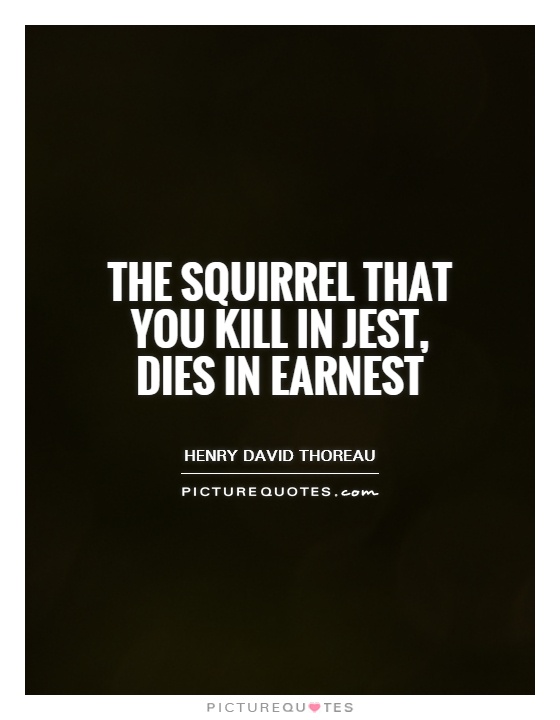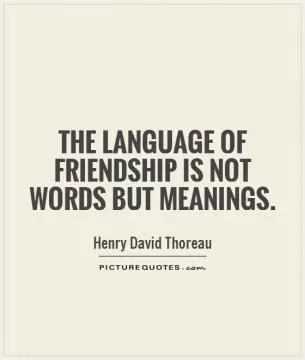The squirrel that you kill in jest, dies in earnest

The squirrel that you kill in jest, dies in earnest
Henry David Thoreau, the renowned American philosopher, naturalist, and writer, is often associated with the quote, "The squirrel that you kill in jest, dies in earnest." This profound statement reflects Thoreau's deep reverence for all living beings and his belief in the interconnectedness of all life forms.Thoreau was a staunch advocate for the protection of nature and wildlife, and he believed that every creature, no matter how small or seemingly insignificant, plays a vital role in the intricate web of life. In his seminal work, "Walden," Thoreau writes about his experiences living in a cabin in the woods near Walden Pond, where he observed the beauty and harmony of the natural world firsthand.
Thoreau's quote serves as a powerful reminder of the consequences of our actions and the impact they have on the world around us. By killing a squirrel in jest, we may think that we are simply engaging in harmless fun or jest, but in reality, we are causing harm and destruction to a living being. Thoreau believed that every life is precious and deserving of respect, and that we must be mindful of the consequences of our actions on the environment and the creatures that inhabit it.
Thoreau's philosophy of interconnectedness and respect for all living beings is more relevant today than ever before, as we face unprecedented challenges such as climate change, habitat destruction, and the loss of biodiversity. By heeding Thoreau's words and recognizing the inherent value of all life forms, we can work towards creating a more sustainable and harmonious relationship with the natural world.












 Friendship Quotes
Friendship Quotes Love Quotes
Love Quotes Life Quotes
Life Quotes Funny Quotes
Funny Quotes Motivational Quotes
Motivational Quotes Inspirational Quotes
Inspirational Quotes